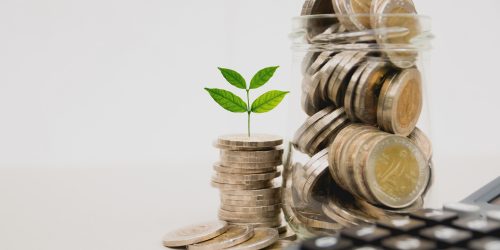How can you save on capital gains tax?

Over the last two years, the tax-free allowance for capital gains tax has been cut by over three-quarters. For the tax year that recently began on 6 April 2024, the Annual Exempt Amount has been reduced to £3,000 (£1,500 for trustees).
These reductions mean that more and more of us are likely to be affected by capital gains tax.
What is capital gains tax?
You could think of capital gains tax as a tax you pay when you make money from selling something that has increased in value. This “something” could be anything from a house to shares or even a piece of art. So, let’s say you bought shares for £500 and sold them later for £1,000. The £500 profit you made could be subject to capital gains tax.
How much tax you pay depends on a few things. Firstly, it depends on what you are selling and how much profit you have made. Secondly, it depends on how much money you make overall in a year. For instance, if you earn more, you might pay a higher rate of tax on your gains. Thirdly, the total amount of gain you make in a tax year is reduced by the Annual Exempt Amount.
However, not all gains are taxed. For instance, if you sell your main home (your ‘principle private residence) or certain types of investments like ISAs, you might not have to pay any tax on the profit. Check with your accountant who can advise you.
Are there ways you can reduce capital gains tax?
There are a few things you could think about doing to help reduce the amount of capital gains tax you might need to pay.
As mentioned above, the rate of tax you pay depends on how much money you make overall. If you can be more tax efficient with your income, this might mean you can pay capital gains tax at a lower rate. One way to do this is by making pension contributions as these extend the basic rate tax band so you are paying more at the basic rate and less at a higher rate.
Where an asset can be separated into different parts – a portfolio of shares would be a good example – you might be able to split the sale between two tax years. For example, you might sell some shares on 5th April, and then more shares on 6th April. This could give you two years’ worth of allowances to spread your gain against.
The Annual Exempt Amount can be combined for jointly owned assets, so you may be able to split your assets with your spouse or civil partner. You must get advice from your accountant before you do this but in certain circumstances you can transfer assets between you without having to pay capital gains tax. If your spouse or civil partner pays income tax at a lower rate than you do, or perhaps has made a loss on selling other assets, this might be a way of reducing the capital gains tax you pay as a couple.
The reductions in Annual Exempt Amount mean that more of us could end up having to pay capital gains tax. However, there may be ways to reduce the amount you pay.
As experienced tax advisers, we have tools that can help you calculate what capital gains tax you might have to pay and can provide personalised advice on the steps that may help you reduce that tax. Why not talk to us to make sure you’re following the rules and not paying more tax than you need to?



